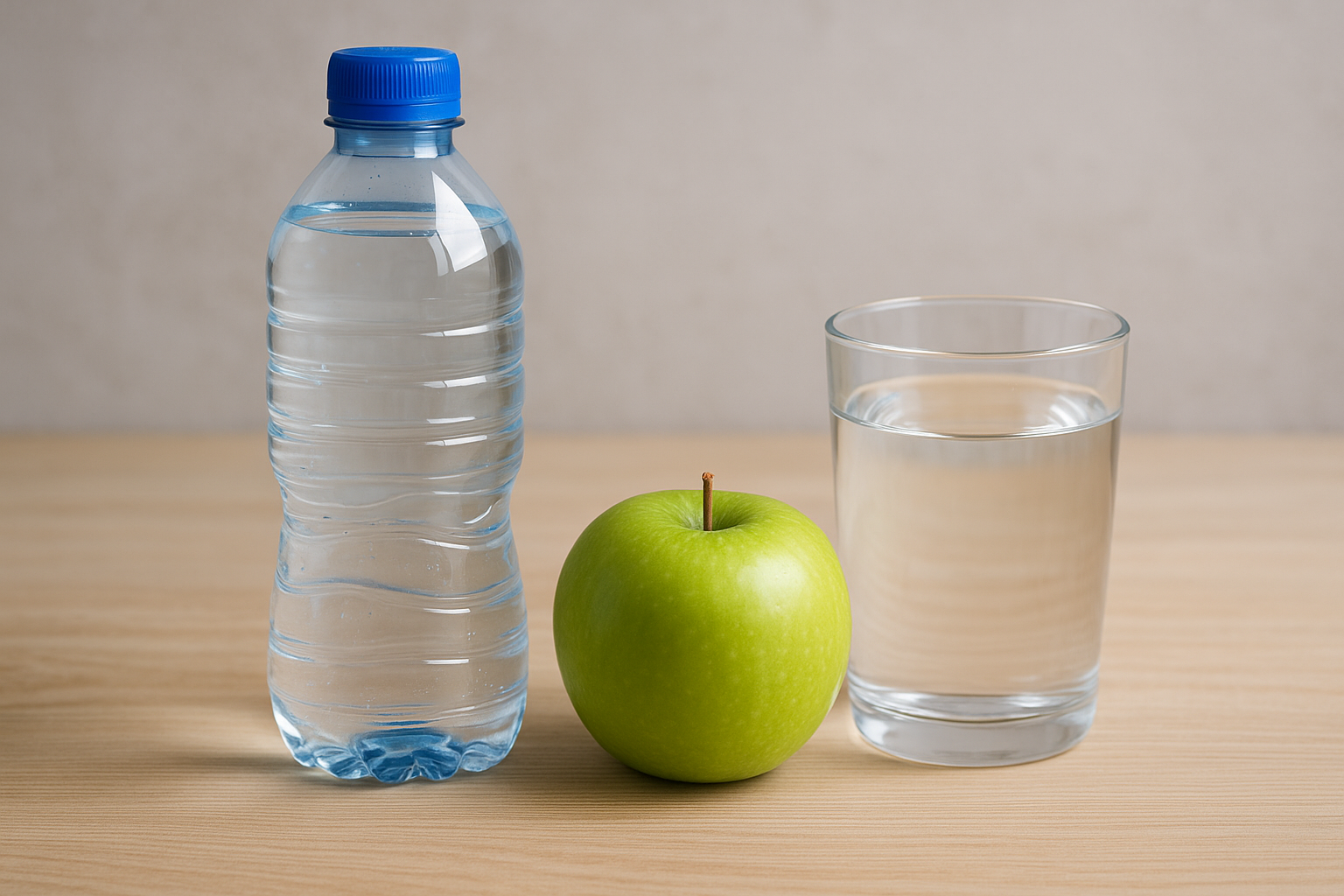Water is more than just a refreshing beverage — it’s the foundation of life. Every cell, tissue, and organ in your body depends on proper hydration to function effectively. Yet, many people walk around in a state of mild dehydration without realizing how it’s affecting their health, energy levels, and mental performance.
Let’s explore why staying hydrated is essential, how it benefits both your body and mind, and practical tips for making hydration a daily habit.
Why Your Body Needs Water
Water plays a central role in nearly every bodily function. Some of its most critical jobs include:
- Regulating body temperature
- Delivering nutrients to cells
- Flushing out toxins through urine and sweat
- Aiding in digestion and nutrient absorption
- Lubricating joints and tissues
- Supporting kidney and liver function
Without enough water, your body can’t perform these tasks efficiently, which can lead to fatigue, headaches, sluggish digestion, and more serious health issues over time.
How Much Water Do You Really Need?
The classic advice to drink eight 8-ounce glasses of water a day is a good starting point, but individual hydration needs vary. Factors that influence your water requirements include:
- Age
- Activity level
- Climate and environment
- Health conditions
- Diet (e.g., high-sodium or high-protein foods require more water)
A general rule is to aim for half your body weight in ounces of water per day. For example, someone who weighs 150 pounds should try to drink about 75 ounces (around 2.2 liters) daily.
Also, listen to your body — thirst is a clear sign that you need to drink more.
Signs You Might Be Dehydrated
Mild dehydration can occur even before you feel thirsty. Look out for these common symptoms:
- Dry mouth or bad breath
- Fatigue or dizziness
- Headaches or brain fog
- Dark yellow or infrequent urine
- Constipation
- Dry skin or skin that lacks elasticity
Chronic dehydration may contribute to long-term health issues like kidney stones, urinary tract infections, and even poor concentration or mood changes.
Hydration and Brain Function
Your brain is approximately 75% water. Even a 1–2% drop in hydration levels can impact cognitive abilities. Staying properly hydrated improves:
- Focus and alertness
- Memory and information processing
- Mood regulation
- Reaction times
In fact, dehydration has been linked to increased anxiety and irritability. Keeping your brain hydrated supports emotional stability and mental clarity.
Hydration and Physical Performance
Whether you’re an athlete or simply going about your daily activities, hydration is crucial for muscle function and endurance. During exercise, you lose water through sweat — sometimes up to a liter per hour.
Proper hydration helps:
- Maintain muscle strength and flexibility
- Prevent cramps and overheating
- Improve recovery time
- Boost stamina and energy
Even mild dehydration during physical activity can lead to a drop in performance and increase the risk of injury.
How Food Contributes to Hydration
While drinking water is the primary source of hydration, you can also get fluids from food. Many fruits and vegetables have high water content and offer vitamins, fiber, and antioxidants as well.
Hydrating foods include:
- Cucumber
- Watermelon
- Strawberries
- Lettuce
- Celery
- Oranges
Including more of these in your diet can support your hydration goals and overall nutrition.
Smart Ways to Stay Hydrated Throughout the Day
If you struggle to drink enough water, try these practical tips:
- Carry a reusable water bottle: Having it with you makes it easy to sip throughout the day.
- Set reminders: Use a hydration app or set alarms to remind you to drink water regularly.
- Flavor your water: Add slices of lemon, cucumber, mint, or berries for a natural boost in flavor.
- Drink a glass before meals: This helps with digestion and reminds you to hydrate consistently.
- Use the “urine test”: If your urine is pale yellow, you’re likely hydrated; if it’s darker, drink more water.
Hydration isn’t about gulping a lot of water at once — it’s about drinking consistently all day long.
Coffee, Tea, and Hydration: Do They Count?
Yes, beverages like tea and coffee do contribute to your daily fluid intake. However, be mindful of caffeine’s diuretic effect — it can lead to increased urination, especially in large amounts.
Try to balance caffeinated drinks with water. Herbal teas are an excellent caffeine-free option for hydration, particularly in the evening.
Hydration and Skin Health
Well-hydrated skin appears more vibrant, plump, and elastic. While topical creams and serums can help, true skin hydration starts from within.
Drinking enough water helps:
- Flush out toxins
- Improve skin elasticity
- Reduce puffiness
- Minimize acne breakouts
It won’t work overnight, but consistent hydration can gradually improve your complexion from the inside out.
Drink Up — Your Health Depends on It
Water is one of the simplest, most powerful tools for enhancing your health and well-being. By staying hydrated, you support your organs, boost brain power, improve physical performance, and maintain emotional balance.
The best part? It’s free, natural, and immediately accessible. So make hydration a priority today — your body and mind will thank you.
Start small. Keep your water bottle nearby. And remember: staying hydrated isn’t a chore — it’s a form of self-care.
